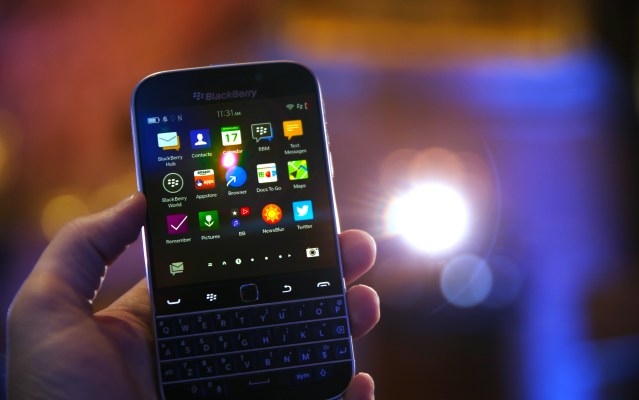At this point, BlackBerry and Windows Phone fans are probably used to having a much smaller selection of apps than their counterparts on iOS and Android smartphones. After all, diehard devotees of BlackBerry and Windows Phone, which both lag dramatically behind Android and iOS in terms of market share, still bought their smartphones in spite of their limited app ecosystems.
BlackBerry CEO John Chen, however, thinks this is unfair. In fact, he thinks it is so “discriminatory” that he wants legislators to widen the definition of net neutrality to include “application neutrality.”
In other words, if a company makes an app for iOS and Android, they must also make a version for BlackBerry and all other operating systems.
In a blog post on BlackBerry’s site that was adapted from a letter Chen sent to several members of Congress, Chen wrote “all wireless broadband customers must have the ability to access any lawful applications and content they choose, and applications/content providers must be prohibited from discriminating based on the customer’s mobile operating system.”
In support of his argument, Chen, who joined BlackBerry as chairman and CEO in November 2013, notes that BlackBerry makes BlackBerry Messenger (BBM) available for iPhone users, even though Apple has not reciprocated by opening up its own messaging service to other platforms.
He also took a swing at Netflix: “Netflix, which has forcefully advocated for carrier neutrality, has discriminated against BlackBerry customers by refusing to make its streaming movie service available to them.”
By focusing on apps for just iOS and Android, Chen says developers are creating a “two-tiered wireless broadband ecosystem, in which iPhone and Android users are able to access far more content and applications than customers using devices running other operating systems. These are precisely the sort of discriminatory practices that neutrality advocates have criticized at the carrier level.”
While this would benefit BlackBerry, dealing with the added expense of being mandated to make apps for platforms that don’t generate significant revenue would probably drive most companies crazy (and put smaller developers out of business). Net neutrality is an extremely important issue with implications for free speech, but rolling “app neutrality” into it seems far-fetched, to say the least.
